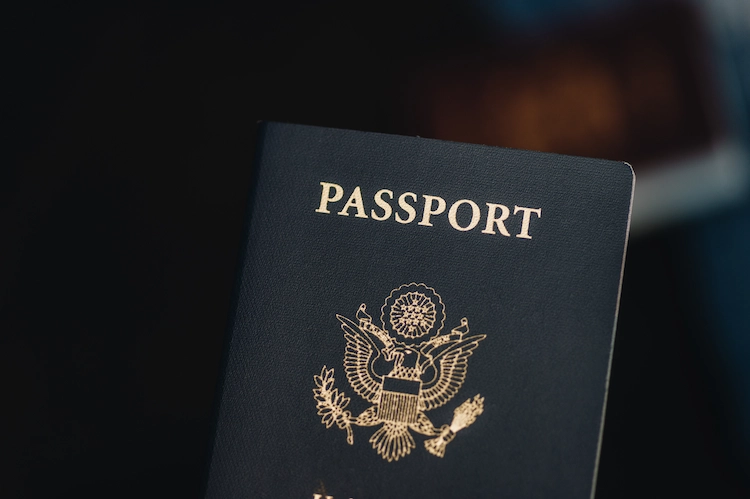Matal v Tam: Supreme Court Holds Disparaging Trademark Ban Violates First Amendment

In Matal v Tam (formerly Lee v. Tam), 582 U. S. ____ (2017), the U.S. Supreme Court struck down the federal ban on registering disparaging trademarks. According to the unanimous Court, the Lanham Act provision prohibiting the registration of disparaging trademarks violated the First Amendment.
Facts of Matal v Tam
The dispute began when Simon Tam, lead singer of the rock group “The Slants,” sought to register the name of his band. Tam and his bandmates, who are all of Asian descent, chose the name in order to “reclaim” the term and drain its denigrating force as a derogatory term for Asian persons.
The Patent and Trademark Office (PTO) denied the application. It cited a Lanham Act provision under which the PTO may deny registration of a trademark that “[c]onsists of or comprises immoral, deceptive, or scandalous matter; or matter which may disparage or falsely suggest a connection with persons, living or dead, institutions, beliefs, or national symbols, or bring them into contempt, or disrepute.” A “disparaging mark” is defined as one that “dishonors by comparison with what is inferior, slights, deprecates, degrades, or affects or injures by unjust comparison.”
Tam contested the denial of registration, arguing that the Lanham Act’s prohibition of disparaging marks was unconstitutional under the First Amendment. The Trademark Trial and Appeal Board upheld the denial throughout the administrative appeals process. Tam finally had success in federal court when the U.S. Court of Appeals for the Federal Circuit ultimately found the disparagement clause violated the First Amendment’s Free Speech Clause.
Supreme Court’s Decision in Matal v Tam
The Supreme Court affirmed the Federal Circuit decision. “We now hold that this provision violates the Free Speech Clause of the First Amendment,” Justice Samuel Alito wrote. “It offends a bedrock First Amendment principle: Speech may not be banned on the ground that it offends.”
The Court rejected the PTO’s contention that trademarks are government speech, holding that “the registration of a trademark converts the mark into government speech would constitute a huge and dangerous extension of the government-speech doctrine.” As Justice Alito further explained:
The Federal Government does not dream up the trademarks registered by the PTO. Except as required by §1052(a), an examiner may not reject a mark based on the viewpoint that it appears to express. If the mark meets the Lanham Act’s viewpoint-neutral requirements, registration is mandatory. And once a mark is registered, the PTO is not authorized to remove it from the register unless a party moves for cancellation, the registration expires, or the Federal Trade Commission initiates proceedings based on certain grounds. It is thus far- fetched to suggest that the content of a registered mark is government speech, especially given the fact that if trademarks become government speech when they are registered, the Federal Government is babbling prodigiously and incoherently.
The Court further concluded that the disparagement clause violates the First Amendment because it amounts to viewpoint discrimination, despite its prohibition of registering all disparaging marks. “It applies equally to marks that damn Democrats and Republicans, capitalists and socialists, and those arrayed on both sides of every possible issue. It denies registration to any mark that is offensive to a substantial percentage of the members of any group,” Justice Alito wrote.“But in the sense relevant here, that is viewpoint discrimination: Giving offense is a viewpoint.
Previous Articles
SCOTUS Holds Wire Fraud Statute Doesn’t Require Proof Victim Suffered Economic Loss
by DONALD SCARINCI on June 24, 2025
In Kousisis v. United States, 605 U.S. ____ (2025), the U.S. Supreme Court held that a defendant wh...
SCOTUS Holds Wire Fraud Statute Doesn’t Require Proof Victim Suffered Economic Loss
by DONALD SCARINCI on June 17, 2025
In Kousisis v. United States, 605 U.S. ____ (2025), the U.S. Supreme Court held that a defendant wh...
SCOTUS Considers Birthright Citizenship
by DONALD SCARINCI on June 13, 2025
On May 15, 2025, the U.S. Supreme Court heard oral arguments in Trump v. CASA, Inc., Trump v. Washi...
The Amendments
-
Amendment1
- Establishment ClauseFree Exercise Clause
- Freedom of Speech
- Freedoms of Press
- Freedom of Assembly, and Petitition
-
Amendment2
- The Right to Bear Arms
-
Amendment4
- Unreasonable Searches and Seizures
-
Amendment5
- Due Process
- Eminent Domain
- Rights of Criminal Defendants
Preamble to the Bill of Rights
Congress of the United States begun and held at the City of New-York, on Wednesday the fourth of March, one thousand seven hundred and eighty nine.
THE Conventions of a number of the States, having at the time of their adopting the Constitution, expressed a desire, in order to prevent misconstruction or abuse of its powers, that further declaratory and restrictive clauses should be added: And as extending the ground of public confidence in the Government, will best ensure the beneficent ends of its institution.





